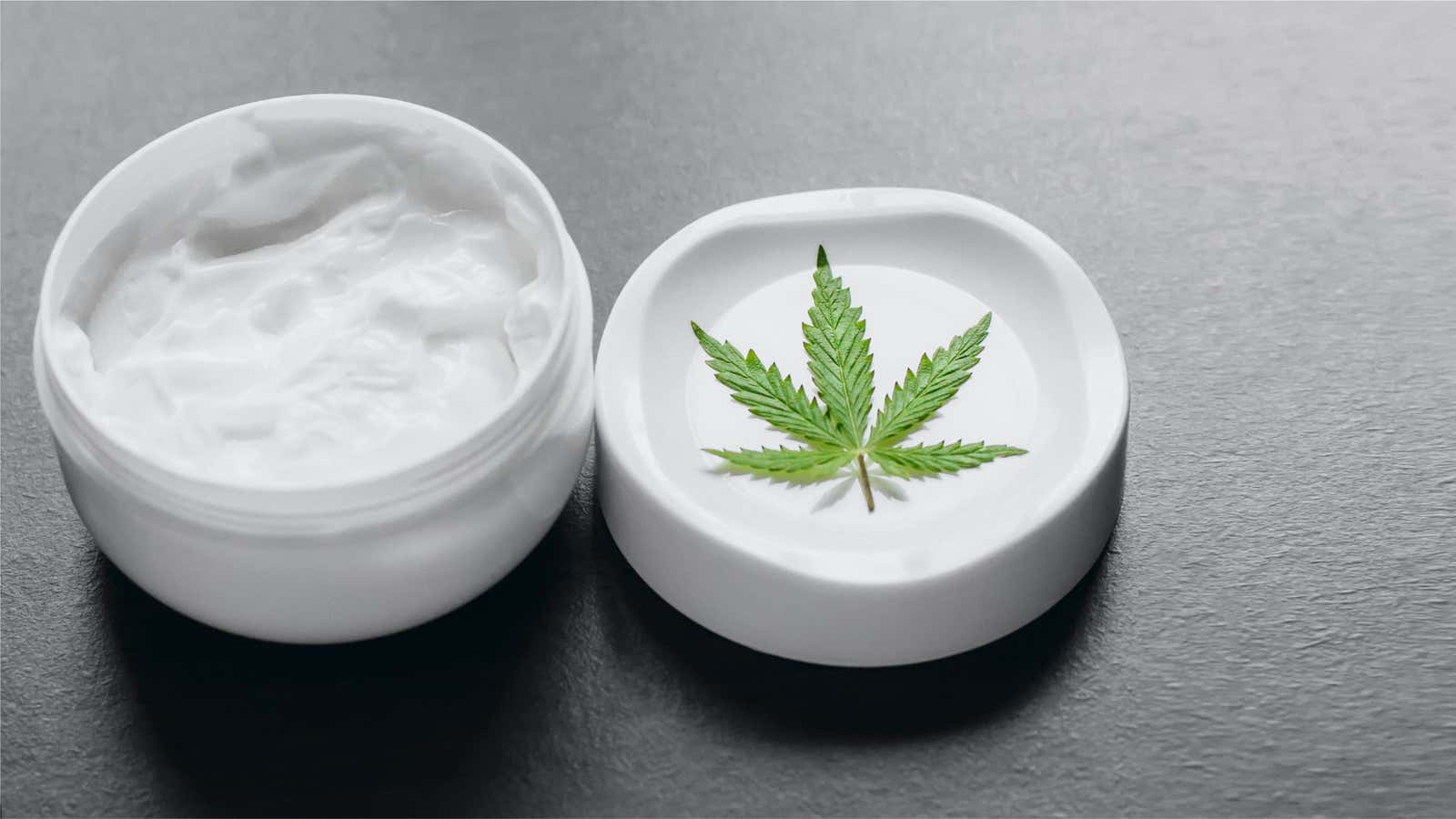Does CBD Really Help for Pain?

Products containing CBD are often marketed for pain relief, but there is no conclusive evidence that they actually do anything. In fact, the FDA recently issued warning letters to two companies that are clearly making CBD products designed to relieve pain.
What is CBD again?
It is a cannabidiol that is derived from hemp. It’s not the part of the plant that gets the buzz, and the 2018 Farm Act has opened a loophole that seems to technically allow it to be sold even where cannabis is illegal. As the CBD market subsequently flourished, the compound has been added to everything from lotions to lattes , with implied promises of relaxation, pain relief, and overall cure for whatever bothers you.
Does CBD do anything for pain?
It is hard to say. From the way it is marketed, pain reliever is a well-known use of CBD. There are versions of the product that you can swallow or inhale, but there are also a variety of ointments and lotions to help you feel better when you massage it into any part of your body that hurts. But the truth is, nobody knows if it works.
A few months ago, I wanted to write about CBD products that are marketed to athletes to “recover” and relieve muscle pain. I got samples of CBD gels and beads from different companies and tried them. I interviewed a CBD CEO and supplement expert who was skeptical about the claims. I’ve read a bunch of research. In the end, I had nothing to report, except for a big shrug. I didn’t feel how topical drugs worked, and I couldn’t present any conclusive evidence that CBD relieves pain or promotes recovery – other than the potential placebo effect. On the other hand, I have not been able to find convincing evidence that this is not the case.
There are studies on CBD, but research settings are only distantly related to scenarios in which people use over-the-counter CBD products. Sometimes studies inject a huge dose of CBD that is beyond the budget of the average person for regular use, or they test combined CBD / THC products – and even then, the results aren’t necessarily clear. Research also often looks at patients with cancer or certain medical conditions, rather than people looking to treat everyday pain. This 2020 review paper on CBD for chronic pain sums up the state of the art:
While these [CBD + THC] products have shown some promising results as a treatment for chronic pain, the effectiveness of CBD must be questioned as the product contains THC as well as CBD. In addition, the safety profile of current CBD products, in particular non-pharmaceuticals, should be questioned due to their false advertising and variable amounts of CBD in the product. Therefore, clinicians and patients should carefully select a CBD product to ensure that patients are taking a high quality product. Despite these concerns, CBD is a promising area for chronic pain management, and further research is needed to evaluate the role of CBD in chronic pain management.
Can the FDA say anything helpful about this?
One drug made from CBD, called Epidiolex, is an FDA-approved drug for treating a specific type of epilepsy. Otherwise, CBD falls into a very fancy gray legal area .
CBD is not approved as an over-the-counter drug, so consumer products that use it for pain relief are considered unapproved drug sales. But because the FDA knows CBD is a drug, companies can’t get away with including it in their “inactive ingredients” or calling it an additive and putting one of those “this statement has not been evaluated by the FDA …” disclaimer.
Rather than taking tough action on every CBD product, the FDA is sending warning letters to specific companies that it believes are doing the most harm. This month’s emails include one to a company that sells CBD pain relief products Elixicure and another to a company that sells various untested products as if they were drugs, including silver-containing products in addition to CBD. Both companies also failed factory inspections.
But what if I like my CBD lotion?
If you use a CBD product and think it works, I certainly won’t tell you to stop. But over time, the FDA may come to the manufacturer.
In the meantime, it would be helpful to think of the flimsy scientific findings: if CBD were a very effective drug, it would be much easier for research to find results. So if it works, then the effect is probably not great. It might be worth considering what else you are doing to ease the pain. For example, does a hot bath help relieve muscle pain? Or might you like a non-CBD liniment as well as an expensive CBD-free liniment? It might be worth experimenting just to expand your options.